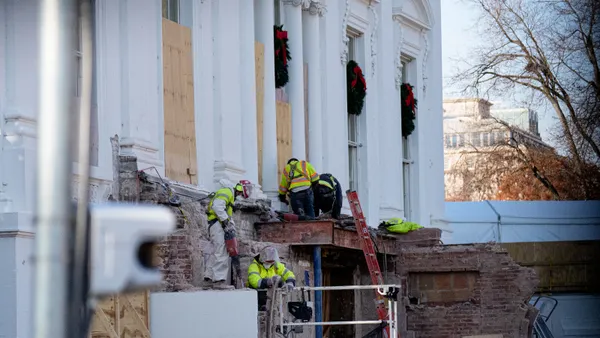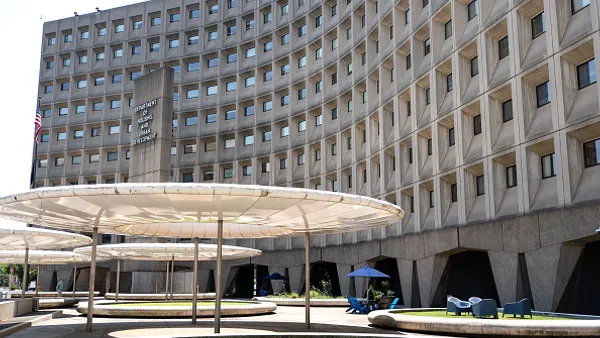Dive Brief:
- In a case of "everyone saw this coming," New York City unions and developers could not reach a wage agreement for workers on the city's affordable housing plan, thereby ending the chance for developers to take advantage of the now-expired, potentially $1.5 billion 421-a tax credit and putting the entire project in jeopardy, Engineering News-Record reported.
- The 421-a credit offered a tax break to multi-unit residential developers who agreed to include affordable units in their projects. The credit expired in June 2015, but was extended for four years providing that the Building and Construction Trades Council and the Real Estate Board of New York could reach an agreement on wages by Jan. 15.
- Unions want the 421-a tax break to include prevailing wage rates, which tend to be higher than median wages and are required on federally funded and some state and city projects. A New York City Independent Budget Office report says a prevailing wage requirement on Mayor Bill de Blasio's 80,000-unit affordable housing proposal would increase the cost of the plan by $2.8 billion.
Dive Insight:
"Without a program like 421-a, one can't build multi-family rental housing with a significant below-market, or affordable, component on a scale necessary to address the city's needs," REBNY president John H. Banks, III, said in a statement.
Of course, Building Trades head Gary LaBarbera disagrees. At the time of the IBO report release, LaBarbera said that the agency's methodology was wrong and that it should not be the basis for any long-term decisions about affordable housing.
However, officials did say that 421-a could be revived if the unions and developers can come to some sort of agreement, Gothamist reported.













